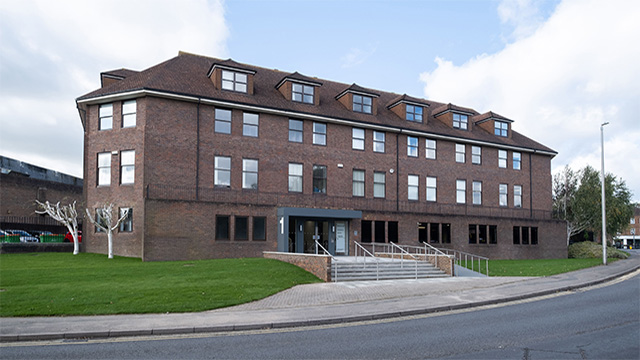Klépierre’s bid for Hammerson: first questions answered
Paris-based pan-European shopping centre owner Klépierre’s £5bn cash-and-share takeover approach for Hammerson could derail its proposed merger with intu.
Klépierre made the takeover approach for Hammerson on 8 March. The offer was swiftly rejected by the Hammerson board, which stated that it was “wholly opportunistic” and “highly inadequate.”
Hammerson’s board may have rejected the offer in less than 24 hours; however, on the morning Klepierre’s approach was made public, Hammerson’s share price rose by 27% while intu’s, which had already dwindled to a pre-approach price, remained at the same level, prompting analysts to question which party could be a better fit for Hammerson.
Paris-based pan-European shopping centre owner Klépierre’s £5bn cash-and-share takeover approach for Hammerson could derail its proposed merger with intu.
Klépierre made the takeover approach for Hammerson on 8 March. The offer was swiftly rejected by the Hammerson board, which stated that it was “wholly opportunistic” and “highly inadequate.”
Hammerson’s board may have rejected the offer in less than 24 hours; however, on the morning Klepierre’s approach was made public, Hammerson’s share price rose by 27% while intu’s, which had already dwindled to a pre-approach price, remained at the same level, prompting analysts to question which party could be a better fit for Hammerson.
Why did Klépierre make the offer?
For Klépierre, the offer makes strategic sense. It owns more than 100 shopping centres in Europe but does not have a UK presence.
The pan-European business is active in 16 countries and had a portfolio valuation at the end of 2017 of €23.8bn (£20.9bn).
It has grown its portfolio since its inception in 1990 through a series of high-profile M&A deals, which include the acquisition of Dutch rival Corio three years ago, a deal which resulted in US mall operator Simon Property Group becoming Klépierre’s largest shareholder with a 20% holding.
Simon Property Group has long wanted to enter the UK market, and in 2010 made an unsuccessful offer for intu (then Capital Shopping Centres). CSC ultimately snubbed Simon and opted for a deal with John Whittaker that resulted in him becoming the company’s largest shareholder in exchange for the Trafford Centre in Manchester.
If Klépierre did scupper a deal between intu and Hammerson it would be sweeten the bitterness that still remains from that deal falling through for Simon as well its chief executive and founder and chairman of Klépierre’s supervisory board, David Simon.
In 2015 he told the EPRA conference that his offer of 425p per share was fair as it had not been ahieved by the company since. Intu’s share price rose to around 253p when the Hammerson deal was announced and is now hovering around 207p.
Against the backdrop of other M&A deals in the sector, including Westfield and Unibail Rodamco’s merger, it makes sense for Klépierre to strike now in order to get a foothold in the UK market and guard against being dwarfed by rivals.
One analyst said: “Klépierre and Simon have an acquisitive business sense and have risen using M&A. Simon has bought a lot of its peers in the US and with the Westfield and Rodamco merger happening, there is a lot going on at the moment.”
Will Hammerson end up taking the bait?
The deal with intu is now in serious doubt and Hammerson management will have to provide compelling evidence that it is a more attractive proposition for shareholders than a deal with Klépierre, particularly if it comes back with another offer.
One analyst said: “It lessens the chances of [the merger] happening significantly. If you look at what Klépierre has proposed, 650p per share is a price which Hammerson has not seen since 2015. It reflects a 20% discount to its December NAV, which is not a million miles away from being a fair price for a business that is concerned about assets.”
Hammerson said it remained “fully committed” to the acquisition of intu and to “the inherent value of its unique and irreplaceable portfolio”.
Criticism over the prospective Hammerson and intu deal had come from a variety of quarters but one of the main objections from Hammerson shareholders was that a deal with intu would result in a lessening in quality of the overall portfolio that the company had for years worked hard to refine and improve.
A deal with Klépierre would, at least in terms of quality of the two companies’ centres, be closer to a merger of equals.
Analysts from Peel Hunt said: “Ironically, the response from Hammerson sets out the portfolio’s unique properties – many of which we believe would be diluted by the intu transaction. With Hammerson’s shares up by around 27%, and intu’s broadly flat, the ‘marriage of convenience’ is now looking considerably less likely.”
Under the proposed terms of its intu merger, Hammerson would have to sell around £2bn of assets, a condition imposed by the UK Competition and Markets Authority.
Because there would be no portfolio overlaps with Klépierre, certainly in the UK, it would not have to pursue these sales which would likely be of its weakest malls for which there is the least demand.
“A deal with Klépierre is so much better for Hammerson in many respects because it means that it will not be forced to sell assets into a challenging market,” one banker said.
“What’s more, Klépierre’s and Hammerson’s combined debt level would be much lower than Hammerson’s and intu’s, which is way too high, meaning that the market would not frown upon this level of debt and force them to sell.”
Prior to the proposed deal with intu Hammerson had also been bulking up its portfolio in France and Ireland which was broadly considered positive given concerns in the UK occupational market and any prospective negatives brought about by Brexit.
While intu has some exposure in Spain, a merger between intu and Hammerson would have increased overall, relative exposure to the UK. A deal with Klépierre of course, which has no UK presence, would do the opposite.
One factor which would be a larger stumbling block in a deal between Hammerson and Klépierre than doing one with intu is the question over what happens with management. Very rarely do listed sector mergers or acquisitions take place unless there are attractive jobs or convenient next steps for respective leaders.
In the case of intu and Hammerson this was particularly simple where in the case of the chief executive position David Fischel, intu’s chief executive had agreed to retire with Hammerson leader David Atkins taking the helm.
In a deal with Klépierre it is difficult to imagine Jean-Marc Jestin, the chairman of the executive board, who effectively runs the company, stepping aside. However, the company does not officially have a chief executive so there could still be a palatable role at any enlarged company for Atkins.
Where does this leave intu?
If a deal with Hammerson does not happen as a result of the Klépierre offer, it could leave intu in a challenging position.
One analyst said: “As an independent business, intu would trade at a bigger discount. There are a lot of concerns over the leverage levels in intu and its ability to drive meaningful rental and earnings growth.”
Its portfolio needs considerable capex in order to be enhanced, maintained and extensions built out to ensure it is at the level demanded by modern shoppers. This is difficult when it already has a debt level of around 45%, broadly considered to be too high in the current quoted market.
Against this backdrop is the fear of falling values in the shopping centre market. The company is currently trading at a discount to NAV of around 40%, which reflects in its most basic terms that the market is valuing intu’s assets at 40% less than their book value.
Over time, it is possible that valuations fall off to reflect this, its loan-to-value rises further and the company becomes even more of a takeover target, whether by a rival such as a merged Hammerson and Klépierre or a cash rich private equity firm that considers UK retail to have hit the bottom and be ready for a rebound.
What does this say about the UK retail market?
Klépierre’s attempt to take on Hammerson highlights the concerns about any assets in the UK shopping centre market that are not super prime.
Matthew Hopkinson, of retail analyst DataIntel, thinks it is a positive story for the UK overall, however.
He says: “The deal illustrates that Hammerson has something that someone else from Europe wants. It might surprise people but we are a small island with a large population and high levels of consumer wealth, and a vast number of people visit here, so it is a great market.”
What happens now?
Under the takeover rules, Klépierre will now have one month to make a firm offer. It is very rare any unsolicited bid of this nature is accepted straight away. The chances of the French company letting the next month fizzle out and for sleeping dogs to lie are slim to none and the Hammerson board is likely to find themselves with another proposition to consider before too long.
To send feedback, e-mail amber.rolt@egi.co.uk or tweet @AmberRoltEG or @estatesgazette











